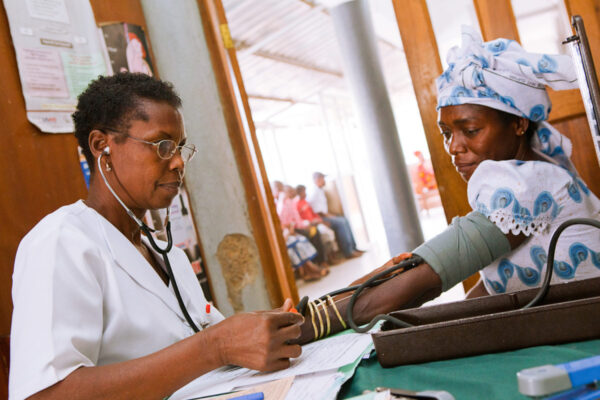AUGUST 30, 2022
Nigeria Receives Healthcare Booster

The healthcare sector in Nigeria could have their gap in funding filled by the private capital from the sector according to the global community of investors report. Several health and wellness indicators are showing that due to the efforts to strengthen the sector in recent years that opportunities are opening. It has highlighted areas investors can assist with be that planned infrastructure projects or areas that have the potential for growth.
The report by the Oxford Business Group (OBG) under the title “Nigeria Health: Focus Report”, showed areas to grow in the Nigerian health sector, including health infrastructure provision, local production of consumable items like syringes and needles, medical technology, and the pharmaceutical industry.
The report states that there has been progress in several areas in recent years, but the toll of Covid-19 and the other challenges of the public health system and rollout of universal health care can still be recognised regardless.
“With Nigeria’s large and young population, the longer-term prospects for private sector investment in the health care sector are promising, and the pandemic has created new opportunities for expansion and innovation,” the report said.
“Indeed, given the continuing mismatch between the country’s health infrastructure needs and available public funding, there is substantial scope for private sector participation in capital projects in the years ahead. Private players providing high-quality medical services at new and existing facilities, as well as supportive financing, could help overcome the limitations of the public system and may ultimately lead to more Nigerians remaining in-country when seeking treatment,”
27 percent of Nigeria’s total facilities were private, 10,900 of a total 40,368 hospitals and practices in operation as of mid-2021, 85.2 percent being primary care facilities, 14.4 offering secondary care and 0.4 being specialised care.
The report noted the gap being N3.7 trillion needed in funding to cater to the ever-growing population.
“This deficit has seen Nigerians seek treatment abroad, which results in some $1 billion in lost spending locally every year. Funding gaps have also led to so-called brain drain, as trained medical personnel look for more lucrative employment opportunities outside of the country,” the report said.
“Given the large share of the government health budget that goes towards recurrent expenditure – as well as the impact of fluctuating international energy prices on government revenue – there is ample opportunity for private sector participation in capital projects,” it said.
The OBG report showed several hospitals working under a PPP model already, including Garki Hospital Abuja, Lagos University Teaching Hospital, Ibom Specialist Hospital in Akwa Ibom, Lagos State University Teaching Hospital and University College Hospital Ibadan. The pandemic has opened windows of opportunity showing room for private sector participation with its plan to build 14 new medical centres and update two intensive care units all six of the country’s geopolitical zones.
Source: Buisenessamlive, July 2022
To find out more Click Here